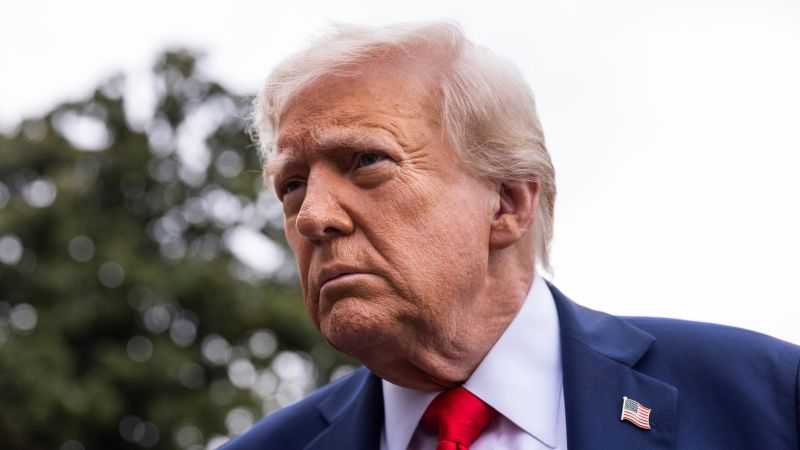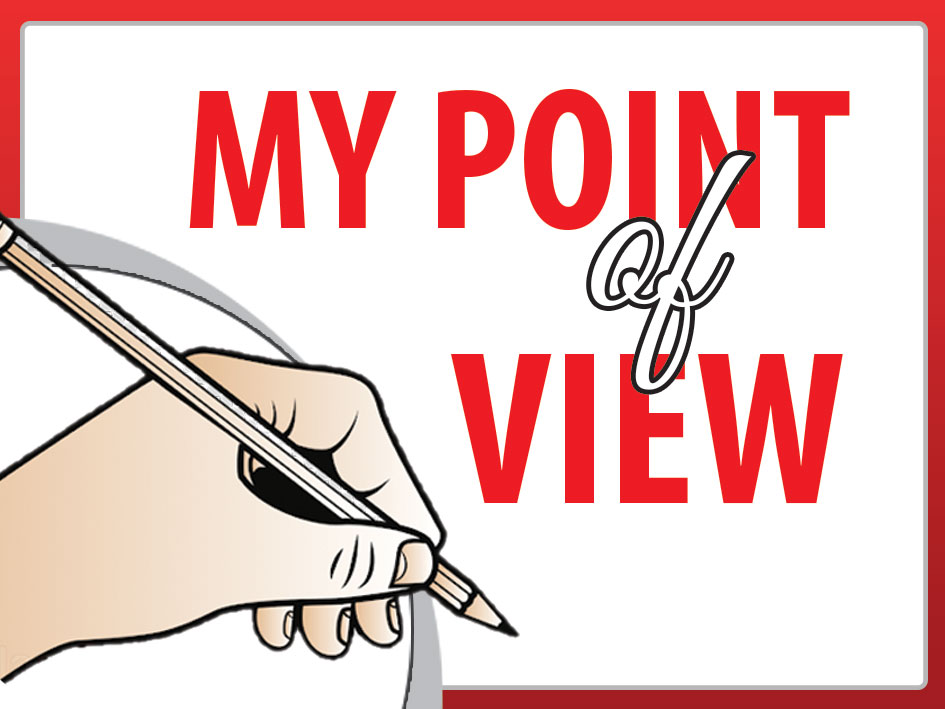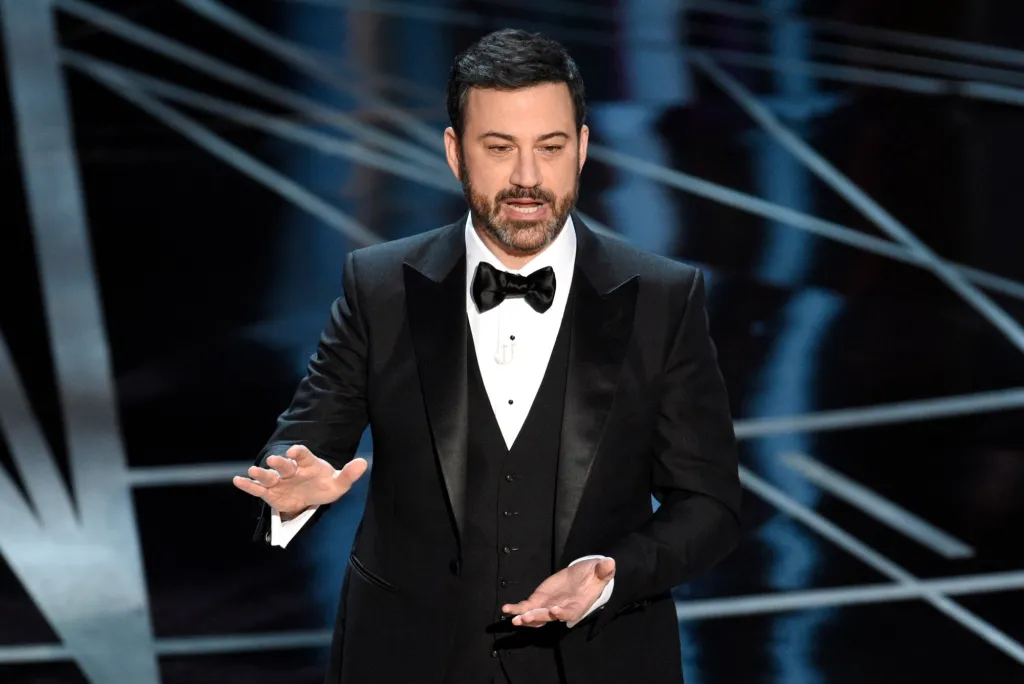
If there’s a metaphor that epitomizes President Donald Trump’s attempts to consolidate power, it’s the boiling frog.
Through a steadily escalating barrage of provocations, he challenges people to keep paying attention and (most importantly) challenges Republicans to object. GOP lawmakers often let it go, and over time the president significantly moves the line – to the point where things that would once have been unthinkable become normalized. It’s been a very successful political strategy.
The problem comes when Trump tries to move that line too quickly.
The past two weeks may fall in that category.
First came Attorney General Pam Bondi’s sudden suggestion, which she later tried to walk back, that the government would prosecute hate speech – comments Trump has suggested he aligned with and that drew almost universal condemnation, even from some MAGA voices. Then came the Federal Communications Commission’s briefly successful pressure campaign to get ABC’s Jimmy Kimmel taken off the air, which has drawn derision from some prominent Republican senators. Then came Trump’s strongest comments to date signaling he’ll put his finger on the scales of justice to target his foes.
In each case, it’s looking like the president is risking not getting what he wants – and, in the process, reinforcing just how much he’s overreached.
Kimmel’s return to television Tuesday night was a significant moment. But it doesn’t mean the saga is over. The fact that FCC Chairman Brendan Carr had at least momentary success in getting Kimmel suspended is significant. And Trump ramped up his attacks on both Kimmel and ABC late Tuesday night, seeming to threaten legal action. “I think we’re going to test ABC out on this. Let’s see how we do. Last time I went after them, they gave me $16 Million Dollars. This one sounds even more lucrative,” he wrote on Truth Social, alluding to a past settlement in a defamation suit.
But the Kimmel episode – combined with the kerfuffle over Bondi’s initial hate speech comments – appears to have awakened free speech-conscious portions of the GOP.
Sen. Ted Cruz of Texas led the way Friday by calling Carr’s pressure “dangerous as hell,” likening it to mob tactics and warning it would blow back on Republicans when Democrats are in charge. Since then, GOP senators including Kentucky’s Rand Paul, Pennsylvania’s David McCormick, Indiana’s Todd Young and Kentucky’s Mitch McConnell have also objected.
That this whole effort might have been a bridge too far shouldn’t be too surprising. A Pew Research Center poll last year showed 6 in 10 Republican-leaning voters said the US government should have no role in policing false information online, for example. Republicans have prided themselves on being anti-censorship in recent years.
All of which could leave the administration with some difficult choices. Does it keep up the pressure on ABC and keep wielding the FCC in extraordinary ways – and in ways even Trump-friendly GOP senators are now suggesting they oppose? Or does the administration scale it back? So far, the president’s social media post on the night of Kimmel’s return would suggest the former.
Trump has even floated stripping networks that are too critical of him of their broadcast licenses. But his power appears limited. And even though a pair of local broadcasters have signaled they will continue preempting Kimmel’s program, they could be limited in their ability to do it.
Trump has been pushing the line on free speech rights for some time, including by targeting American flag-burning and pro-Palestinian protesters, as well as by seeming to use the leverage of government power to get companies to settle defamation lawsuits with him.
If anything, the renewed debate over free speech appears to have distilled the issue into something simpler for people to understand – and to object to.
Trump’s other big line-pushing moment in recent days has been his rather blatant effort to push the government to bring criminal charges against his political foes.
Trump on Friday pushed out the US attorney for the Eastern District of Virginia, Erik Siebert, over his failure to charge New York Attorney General Letitia James over still tenuous claims of mortgage fraud. He followed that up Saturday by publicly pleading with Attorney General Pam Bondi to get moving on targeting his political foes.
This is Trump finally doing the thing he has flirted with for a very long time.
There was the firing of James Comey in 2017 and Trump’s effort to pressure his first attorney general, Jeff Sessions, over his failure to exercise more control over the Russia investigation. Then there were Trump’s clashes with then-Attorney General William Barr over the same issue. (Barr once felt compelled to say publicly that Trump remarking on cases was making it “impossible” to do his job.)
Where this pressure differs is how overt it is. Trump has made clear he just wants charges, and he’s prepared to use the tools at his disposal to make them happen.
But there’s a case to be made that that could work against Trump – both politically and practically.
On the political front, this is something that even many Republicans have suggested was beyond the pale and unthinkable. They rationalized the firing of Comey as it being Trump’s prerogative and his commentary on ongoing cases as Trump being Trump. But there’s really no spinning this as anything other than the president putting pressure on his Justice Department to bring charges against his perceived political enemies.
It also flies in the face of how both the vast majority of Americans and about half of Republicans have felt about the issue. A CNN poll last year showed 7 in 10 Americans and 48% of Republican-leaning voters said it was not okay for Trump to try and direct the Justice Department to investigate his rivals.
Perhaps even more telling, it’s something most Trump supporters didn’t even think he would do. A CNN poll early this year showed 53% of Trump supporters didn’t believe he would ever attempt it, which suggests they viewed it as a severe action.
And practically speaking, it’s quite possible Trump’s overt pressure will actually make prosecuting his foes harder.
The National Review’s Andrew McCarthy has a good piece on this. He points out that judges could view Trump’s pressure as reason to dismiss the cases on selective-prosecution grounds. He suggests it could also jeopardize grand juries’ willingness to indict, which has already been an issue with the Trump DOJ’s zealous charges during his federal crackdown in DC.
The question of Trump’s potential political influence in these cases was already out there given his past commentary and pressure on the DOJ; but now it’s a lot easier to trace potential indictments to politics. If someone who’s been publicly targeted by Trump is indicted, the question will instantly be whether this was ordered by him.



